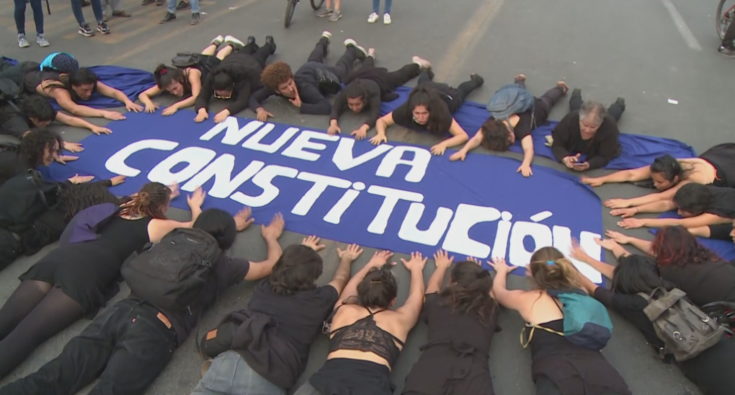The draft of the new constitution proposed by the Constituent Convention is now in our hands. It is now in the harmonisation phase, where the final touches are being put on it so that the proposed constitutional text can emerge, destined to be put to a plebiscite on 4 September.
Although its genesis is usually traced back to the social outburst of October 2019, strictly speaking it has been going on for quite some time. For some since the very minute that the current constitution, the 1980s, was structured, for others since the beginning of the democratic transition in 1990. We fool ourselves time and time again. In 2018, on the occasion of an ICARE forum, the then interior minister of the Piñera government, Andrés Chadwick, said that “we must have a clear compass” and concluded by stating that “we do not want the project for a new constitution presented by Michelle Bachelet to move forward”. The same minister went so far as to say that “we have a large, solid and stable middle class…”. However, everything that seemed solid became liquid and what was stable became unstable.
In a way it was a kind of simmering until the explosion made us realise that the institutional channels were being overwhelmed with a significant part of the country outside the consumer society, resentful, discontented, angry, violated, indebted. The political institutions were incapable of anticipating, especially the forces of the right, of assuming the urgency of what was being cooked up. Until it became impossible to continue stretching the rope, that is, to avoid the need for a new social pact, a new look, new rules of the game under which we could live in peace.
This is how a whole process began, which started by asking us whether we wanted a new constitution or whether we wanted to continue with the current constitution. Together with this, if we opted for a new constitution, we were asked whether we wanted it to be drafted with the participation of parliamentarians from the national congress or only by those who were expressly elected for that exclusive purpose. The result was overwhelmingly in favour of building a new constitution without the participation of parliamentarians. Subsequently, the election of the members of the Convention who would be responsible for proposing a new constitution was held.
Today these Convention members have already sent us the corresponding draft. It has been a difficult task. Their path has not been a bed of roses, far from it, but full of thorns. For all that, we are facing a society, a broken country, with inequalities and injustices that are bleeding us dry, in an existential crisis.
For this reason, the challenge of the Convention has been a major one: to make the need to unite us, to reduce the inequalities of all kinds that hurt us, to provide us with a minimum social state of rights, to break with the prevailing centralism, to shape a new relationship with our native peoples and to reconcile growth and development with due protection of the environment, the beacon of our actions. In this day and age, it is not acceptable that “sacrifice zones” should continue to exist.
I trust that beyond the bickering, the strident voices, the falsehoods that obscure the path, the new constitution that is presented to us will be the framework in which we can develop in peace and harmony among equals, without privileges.










